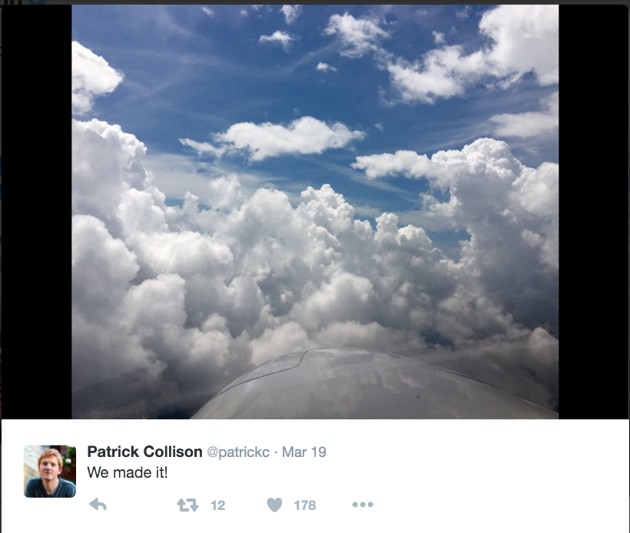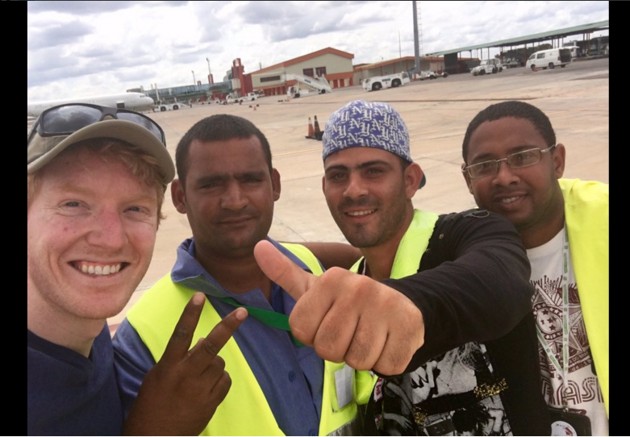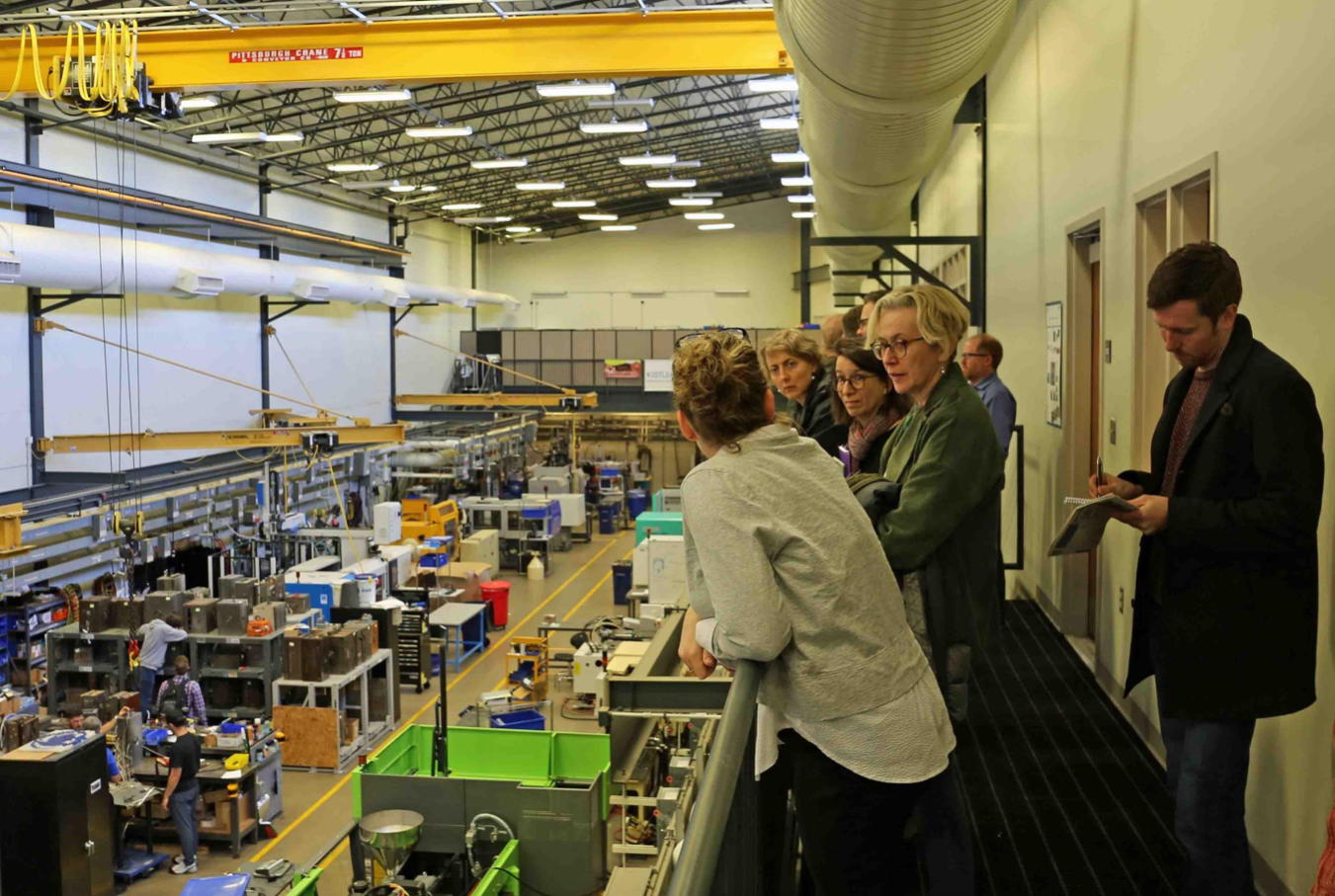Let’s get back to some positive news — actually, let’s connect the positive news I’m about to give, to the drear of domestic U.S. political news that consumes us all.
In today’s NYT Magazine, Adam Davidson has an excellent and fresh analysis of the way Donald Trump talks about both business and international affairs. For Trump it’s all win or lose, smart or dumb, they’re screwing us and we have to start screwing them. The underlying reason, Davidson points out, is that Trump comes from a part of the business world that is abnormally “rent-seeking” (in the economist’s sense) and zero-sum: the world of Manhattan real estate.
There is only so much space to build in Manhattan, there are only so many permits to be had, only so many ways you can “be disruptive” or “change the world” through a real estate deal. What you can do, as Davidson points out, is get a little bigger slice of the pie for yourself, which leaves a little less for the other guy — making you the winner and the other guy the loser. This view underlies the way Trump talks about everything. Davidson says:
Manhattan real estate development is about as far as it is possible to get, within the United States, from that Econ 101 notion of mutually beneficial transactions.
This is not a marketplace characterized by competition and dynamism; instead, Manhattan real estate looks an awful lot more like a Middle Eastern rentier economy. It is a hereditary system. We talk about families, not entrepreneurs. A handful of families have dominated the city’s real estate development for decades: Speyer, Tishman, Durst, Fisher, Malkin, Milstein, Resnick, LeFrak, Rose, Zeckendorf. Having grown up in Manhattan myself, I think of these names the way I heard Middle Easterners speak of the great sheikhs who ran big families in Jordan, Iraq and Syria. These are people of immense power and influence, but their actual skills and abilities are opaque. They do, however, make ”deals.”
Of course deals matter at every level, from haggling at a bazaar to striking a nuclear arms-control agreement. But in the parts of economic and social life where new things are being created, the deal is the means, not the end itself. The founders of Apple and of Google, of Disney and of WalMart, of Tesla and of Nike and whatever example you’d choose, are aware of deals. But none of them began with the deal centrally in mind. The business, the product, the disruption, the creation were what originally fascinated and motivated them. The deals protected what they’d figured out. But figuring it out, and then making it happen, was the attraction and challenge.
Understanding the impulses behind entrepreneurship and creativity, and the practical circumstances that make these efforts more or less attainable, really matters for a society. It matters much more than “making good deals.” It matters because of the reality underscored in the Kauffman Foundation research that I mention in my March issue cover story, and the updated report that Kauffman put out last month.
Those reports emphasized that if a society wants more jobs, it needs to keep fostering more new companies. That is because of the non-obvious but well-substantiated point that, in toto, virtually all the growth in jobs come from companies in their first few years of existence. Big businesses have big payrolls, but taken as a group, long-established companies are laying off as many people as they’re hiring. Thus putting more people to work means reducing the practical barriers between having an idea and starting a small company.
All this is the background to news in the NYT last month that the young Collison brothers of Ireland, John and Patrick, who together have founded the online payments system Stripe, had introduced a new feature designed to make it easier for entrepreneurs around the world to reach a global market. The feature is called Stripe Atlas, and you can see info and watch a video about it here. (For the record: I have met John and Patrick Collison of Stripe, and their journalist-brother Tommy, in San Francisco but have no connection to the company beyond being interested in its idea.)

The new Stripe Atlas features may not sound like much. Essentially, they offer a low-cost way for small businesses around the world to set up a presence in the U.S. financial and banking system. For a fee of $500, the companies get a U.S. bank account, so they can accept payments in U.S. dollars; a U.S. corporate identity, as a Delaware corporation, of course; and U.S. tax registration and tax/legal advice. As a result of these changes and some others, an entrepreneur in Egypt or Turkey or Ghana or Poland is able to operate as if it had a U.S. branch, which previously only much larger companies would have been able to afford. As Patrick Collison explained in an email:
The nuts and bolts of the business infrastructure was the hardest part
of getting started for them. Now, entrepreneurs across more than 170
countries (with a combined population of 6 billion people!) can get
access to the same business infrastructure enjoyed by technology
companies across the US and Europe.
One obvious question is: Does any of this matter? To see how it might, consider other mundane-seeming changes that profoundly changed the terrain of opportunity. A generation ago, FedEx and Express Mail allowed small companies to do what previously had required a large corporation’s shipping department. A decade ago, easy web-creation and blogging tools allowed anyone to establish an online presence. The worldwide ATM network, along with international credit-card acceptance, has greatly streamlined the previously headache-filled process of dealing with foreign currencies. None of these is particularly “interesting” as a concept, but cumulatively they’ve had a profound effect.
The other potential Trump-era American question, or reaction, is: Oh no! One more tool for the foreigners!! Without making the whole case right now, I think that reflects the Manhattan deal-maker’s zero-sum mentality, as opposed to the way businesses and opportunities are really developing around the world and in the United States. No American jobs are going to be “taken” by the little Egyptian or Turkish startups you see in some of the Atlas videos. While I’m a long-time skeptic of the automatic benefits of globalized trade, everything I’ve seen over the decades tells me that helping dispersed entrepreneurs like these (versus large state industries) will be good for them, good for their countries, good for the world, and good for the United States.

Now, applying this to the news of the day: For more than half a century, the U.S. embargo of Cuba has made it illegal for U.S.-based entities to do business of almost any sort there. But in the preparation for President Obama’s visit to Cuba starting today, this past week the Treasury relaxed some of those regulations — specifically including ones that affected the Stripe Atlas features. As Harry McCracken reported this week in Fast Company:
“A few weeks ago, the White House reached out to us,” says John Collison, who cofounded Stripe in 2010 with his brother Patrick. As the White House had been making plans for the new banking policies and next week’s trip, “people on the ground in Cuba suggested the president check out this Atlas thing,” Collison told me.
After hearing from the Obama administration, Stripe moved quickly to prep a version of the service it could offer in Cuba.
That’s part of what is going on in Havana right now — and other sites in the United States and around the world. I hope to speak with some of Stripe’s Cuba-based team this week, and will follow up.
In the meantime, this is an example of the adaptive, creative, entrepreneurial activity underway in so many more places than usually make it onto the media radar. And since the Collisons are also an aviation family, I must close with one of the pictures Patrick has posted via Twitter, of flying his own little airplane from Miami to Havana yesterday.
An en route picture:

And on the ground in Cuba, with Patrick Collison on the left.

To wrap this up: the nastiest part of our political dialogue has been based on a fixed-pie, I-win/you-lose version of economic life that might make sense in New York real estate deal making, but which (I think) deeply misunderstands the most important trends in the “real” economy. Those trends are part of what we’re trying to report.




